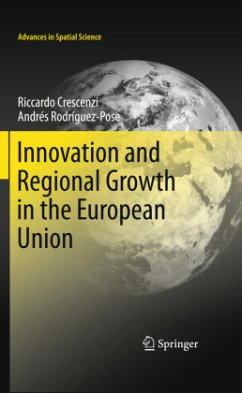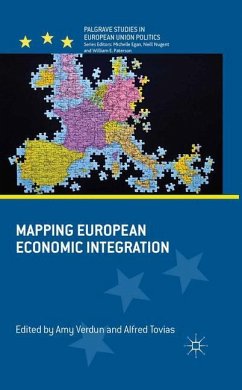
Stabilizing and Integrating the Balkans
Economic Analysis of the Stability Pact, EU Reforms and International Organizations
Versandkostenfrei!
Versandfertig in 1-2 Wochen
39,99 €
inkl. MwSt.
Weitere Ausgaben:

PAYBACK Punkte
20 °P sammeln!
Professor Paul Welfens offers a unique and timely approach to the major task of stabilizing and integrating the Balkans. His book is one of the first to assess in depth the progress of reconstruction and to evaluate the success of coordination on the part of various Western governments and international organizations. Professor Welfens sees an intimate connection, in the sense of equal responsibility, between internal reform, restructuring, and revitalization in the region and Western financing, ideas, and programs. Professor Welfens has coined the term "networked approach" to capture the stra...
Professor Paul Welfens offers a unique and timely approach to the major task of stabilizing and integrating the Balkans. His book is one of the first to assess in depth the progress of reconstruction and to evaluate the success of coordination on the part of various Western governments and international organizations. Professor Welfens sees an intimate connection, in the sense of equal responsibility, between internal reform, restructuring, and revitalization in the region and Western financing, ideas, and programs. Professor Welfens has coined the term "networked approach" to capture the strategy of Western cooperation among multiple actors, particularly through the mechanism of the Stability Pact for Southeastern Europe. In addition to demonstrating where the Stability Pact works well, he identifies problem areas, with respect to both inconsistencies in donor policies and coordination and significant structural variations among Balkan countries and entities. He also flags concerns about EU enlargement overstretch. This book has emerged from a bi-national, cross-disciplinary research project at the American Institute for Contemporary German Studies on "Cooperation and Competition: American, European Union, and German Policies in the Balkans" that explores the opportunities and obstacles regarding cooperation in the political, economic and military realms. The project - financed by a grant from the DaimlerChrysler-Fonds im Stifterverband fur die Deutsche Wissenschaft examines the implications of lessons learned in the Balkans for transatlantic relations, an area Professor Welfens discusses with some concern about potential conflicts. Additional individual and collective products from the AICGS research project will be forthcoming during 2001.














